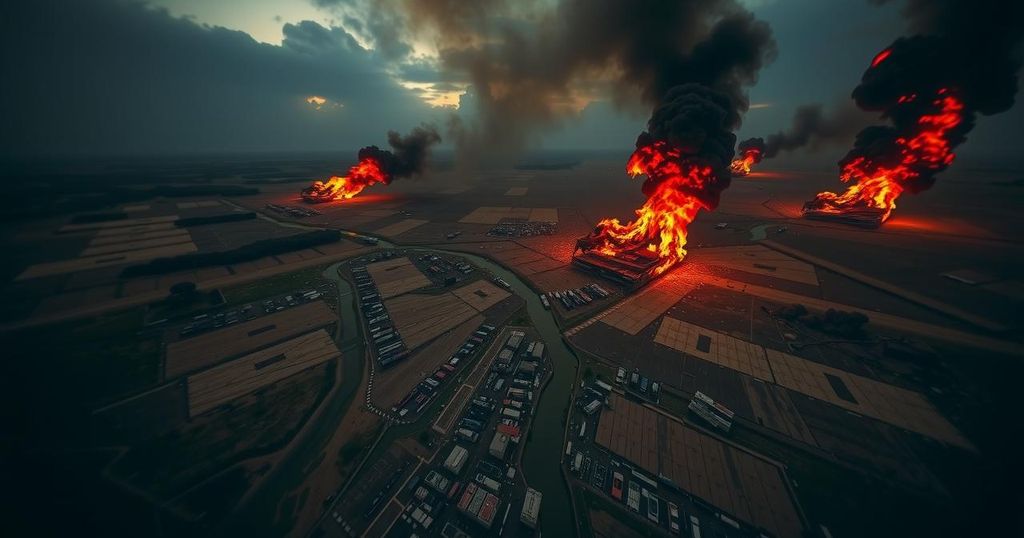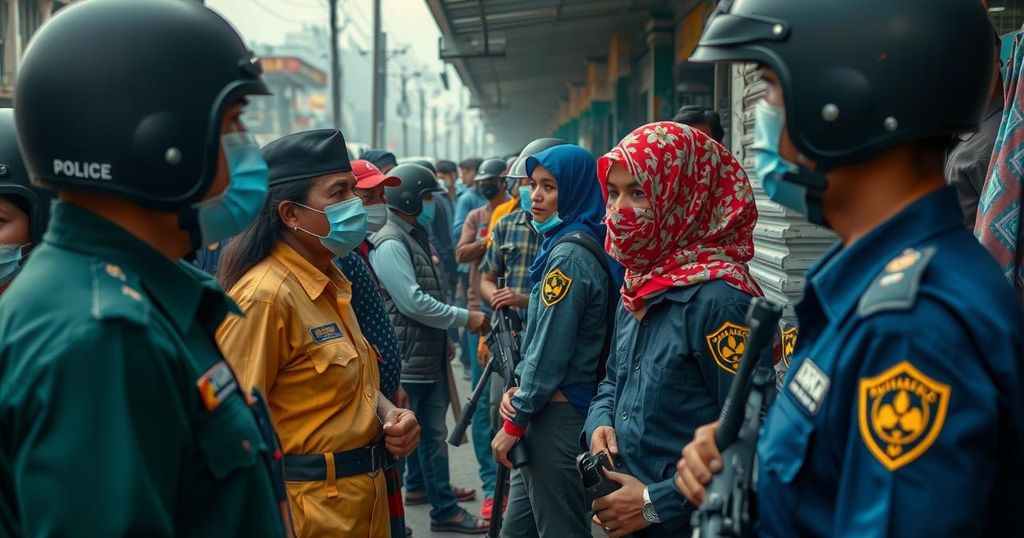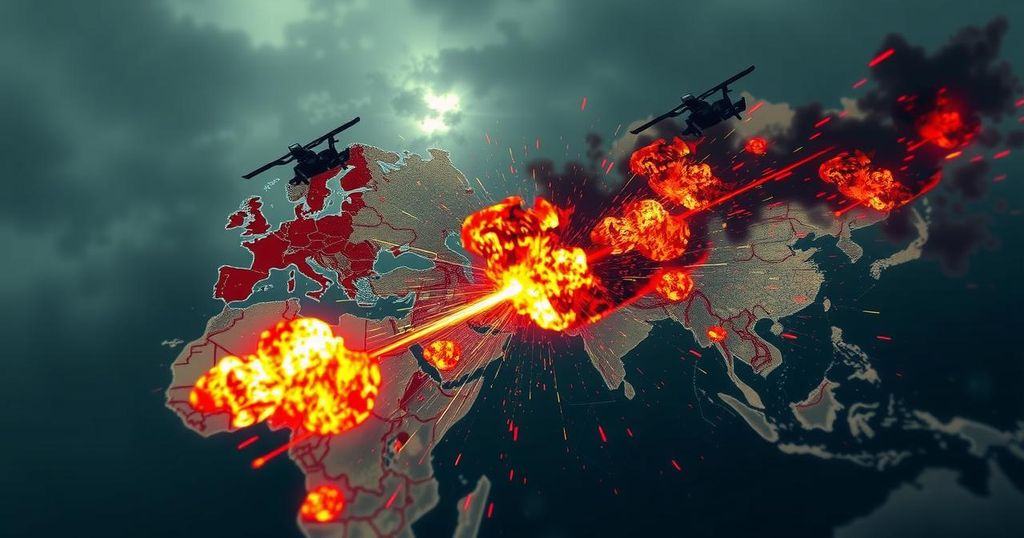Sudan’s Civil War: A Humanitarian Disaster Fueled by Global Arms Supply
Sudan’s civil war has resulted in over 61,000 deaths and widespread humanitarian crises, as reported by the London School of Hygiene & Tropical Medicine. The conflict, ignited by power struggles between the SAF and RSF, has led to starvation tactics against civilians and severe underreporting of fatalities. Additionally, international supply of arms is raising concerns of legal violations, while humanitarian efforts face significant obstacles, exacerbating the suffering of millions in Sudan.
Sudan is mired in one of the most catastrophic civil wars witnessed in recent times, with an astounding human toll. A study from the London School of Hygiene & Tropical Medicine reported over 61,000 deaths in Khartoum State from April 2023 to June 2024, which starkly contrasts with the Armed Conflict Location and Event Data Project’s figure of 20,178 deaths nationally. Most of these fatalities arose not solely from violence, but also from preventable diseases and starvation linked to the ongoing conflict. The hostilities between the Sudanese Armed Forces (SAF) and the paramilitary Rapid Support Forces (RSF) ignited due to escalating disputes among military leadership. Initially a power struggle among former allies, the conflict has devolved into rampant human rights violations and humanitarian crises. The United Nations estimates the loss of at least 20,000 lives since the outset of the war, with both factions reportedly employing starvation as a weapon against civilians — an abominable tactic according to international law. The severity of the food crisis is alarming, with families reportedly resorting to scavenging leaves and insects for sustenance amidst widespread famine. Major aid organizations have warned of unprecedented hunger, affecting up to 25 million civilians. Humanitarian access remains perilous due to ongoing conflict, impeding deliveries of essential aid and leaving many vulnerable to the brutal ramifications of war. Additionally, Amnesty International’s findings reveal the deployment of UAE-supplied armored vehicles with French defense systems in combat zones, raising alarms about potential breaches of UN arms embargoes. These vehicles, particularly the Nimr Ajban equipped with the Galix reactive defense system, have been particularly noted in Darfur, where their use by the RSF has drawn international scrutiny. Agnès Callamard, Amnesty International’s Secretary General, stated, “Our research shows weaponry manufactured in France is actively involved on the battlefield,” and called for an immediate halt to French military supplies to the UAE. Defending their position, the French Ministry of Defense asserted adherence to all export regulations. Conversely, the UAE has dismissed the accusations as misinformation that detracts from its humanitarian and foreign policy efforts. Amidst this chaos, reports of disturbing sexual violence against women, particularly refugees, are emerging. Many women recount being coerced into sex work for survival, illustrating the gendered impacts of the conflict and the heightened vulnerabilities faced by women and children. International mediation efforts have yielded minimal results, with both sides deeply entrenched in their positions. The Biden administration has imposed sanctions on various entities associated with the conflict, citing violations of human rights and war crimes. Advocacy groups are pressing for urgent international intervention, calling for increased humanitarian assistance and stricter regulations on arms transfers that perpetuate the violence. Looking ahead, reports indicate that further violence may escalate if the RSF launches significant operations, particularly aimed at cities like El Fasher. Such offensive actions threaten to worsen the already dire humanitarian situation, leading to increased displacements and heightening the risk of starvation for those trapped in war-torn areas. In summary, these developments illuminate not only the militarized conflict but also the broader humanitarian crisis unfolding within Sudan, necessitating a decisive response from the international community to alleviate suffering and restore peace.
The civil strife in Sudan, rooted in political power struggles and escalating military tensions, has resulted in an alarming humanitarian disaster. Reports indicate severe underreporting of casualties, with a significant number suffering from famine and preventable diseases. The involvement of foreign arms in the conflict raises concerns regarding adherence to international law, while widespread human rights abuses—including sexual violence—highlight the conflict’s devastating impact on vulnerable populations, particularly women and children. As international intervention remains crucial, Sudan faces a dire need for humanitarian support amid ongoing violence and suffering.
In conclusion, the civil war in Sudan exemplifies a devastating humanitarian crisis exacerbated by international arms supplies and persistent fighting. With a staggering number of casualties and rampant human rights violations, immediate action from the international community is essential to mitigate further suffering. Calls for enhanced humanitarian support and regulations on arms sales must intensify to address the ongoing crisis effectively. As the violence escalates and hunger deepens, the future of the Sudanese people remains precarious, underscoring the urgent need for a global response to this catastrophe.
Original Source: evrimagaci.org








Post Comment